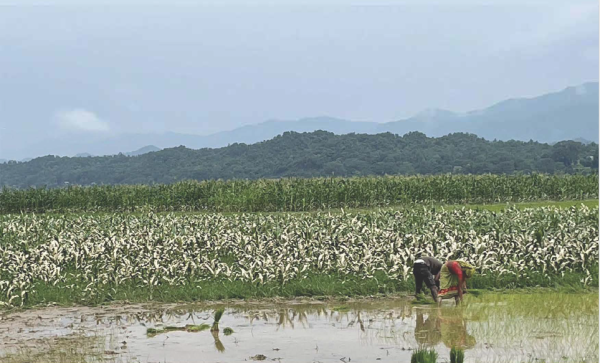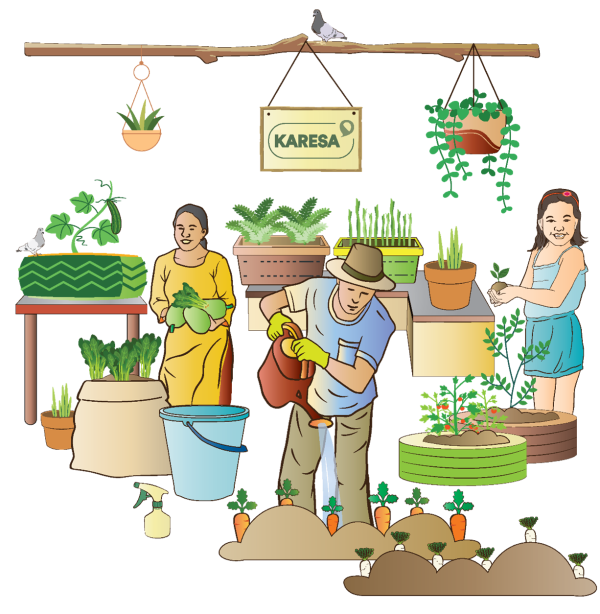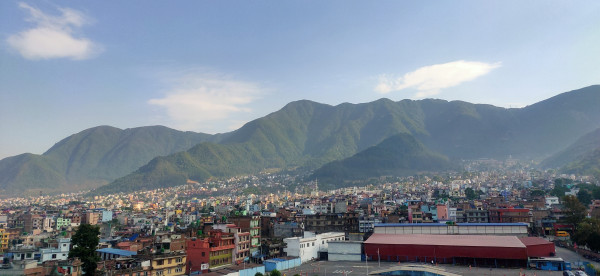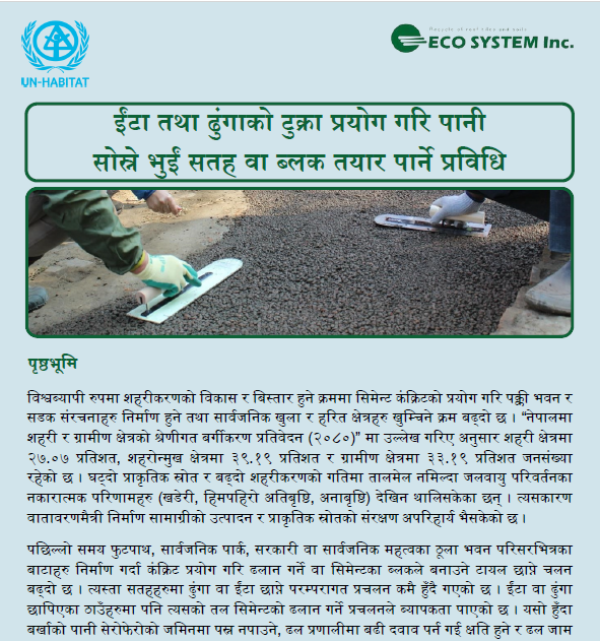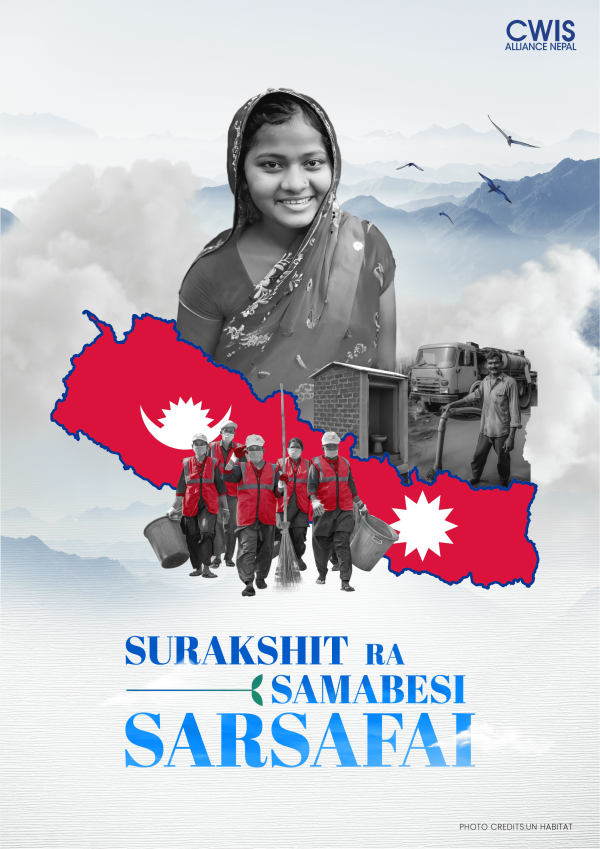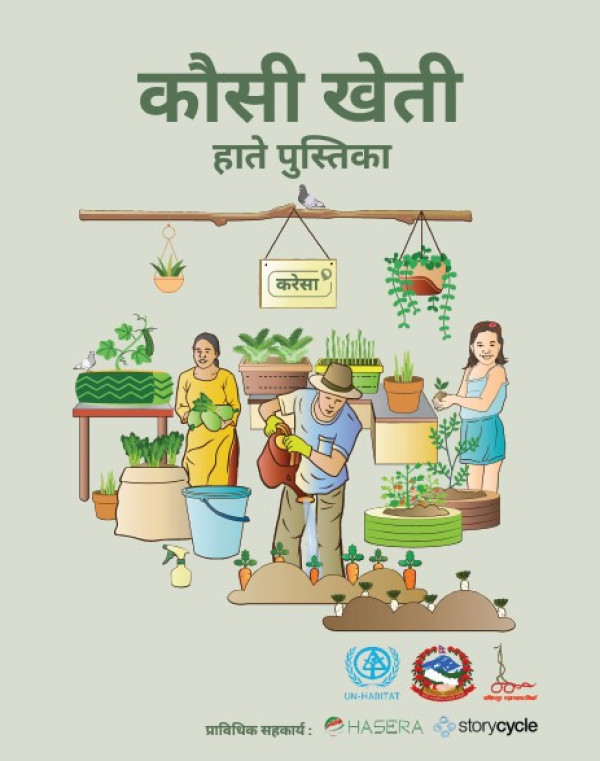Strong steps towards total sanitation in Nepal as officials declare Sunsari and Nuwakot districts free of open defecation
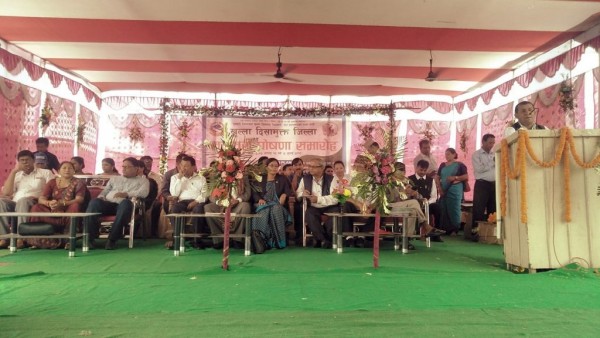
Summary Messages
- Sunsari District’s open defecation free (ODF) declaration, the construction of 144,347 toilets and the promotion of hand-washing practices will not only greatly impact safety and dignity, but also have positive economic effects in the country.
- Nuwakot District, being one of the most affected areas during the 2015 earthquake, is the 58th district out of 77 in the country to be declared 100% ODF.
- Honourable Ministers, Members of Parliament and other key officials and local communities took part of the official ceremonies.
- WSSCC has supported behavioural changes in communities for hand-washing, sustainable use of toilets, adoption of proper hygiene behaviours and strengthening district level monitoring and knowledge management towards total sanitation
Ms. Sudha Shrestha, Acting Chief Technical Advisor and GSF Programme Manager at UN-Habitat, Nepal.
Ms. Sudha Shrestha, Acting Chief Technical Advisor and GSF Programme Manager at the United Nations Human Settlement Program (UN-Habitat), shared her joy, noting how “despite our greatest challenge of social acceptance and continued open defecation, the local government’s leadership alongside our development partners and communities’ ownership is what paved the way to its success.”
In Nuwakot, Mr. Bahadur Singh Lama made a special mention to sanitation triggerers and women for their active leadership role to achieve the result and made a similar statement: ”We have to work sincerely on total sanitation as the responsibility has been bestowed upon us for the days to come.”
Nuwakot village is one of 14 districts most affected by the earthquakes in 2015. From a zero-subsidy approach, the Government, with the support of local NGOs and donor agencies, alongside the active role of the WASH sector and the community, led to the district’s official status of ODF. It is part of a national campaign to persuade people to use toilets and improve sanitation and cleanliness. The Government has shown a unanimous political unity on this front. Additionallly, community groups and schools have been very active in the development of the campaign.
Sunsari, located in the country’s eastern Terai region, is one of the biggest economic hubs of Nepal. Bordering India, it has better access to transportation, education and other facilities compared to other districts. Therefore, achieving a cleaner and healthier environment through a focus on eliminating open defecation would not only greatly impact the community’s safety and dignity, but would also have positive economic effects. Sunsari’s history in receiving support to its sanitation practices goes back to 1980, when various development partners and international non-governmental organisations attempted to improve the situation. However, past efforts to address the problem had little success.
WSSCC has been involved in the process after the earthquakes in July 2015. The Global Sanitation Fund has been providing support, by giving priority to educational initiatives about hygiene and sanitation. Through plays, poetry, singing and dancing, the ‘triggering’ process was piloted in the area where villagers have been educated about good sanitation and hygiene practices as well as the construction of toilets.
Sunsari and Nuwakot are now the role models for the joint efforts of international actors, local communities, institutions and district level stakeholders coming together, working towards ODF targets. The importance of proper sanitation and hygiene more often than not gets overlooked, however, improving this sector with as simple as quality access to facilities like a toilet helps people build a life filled with pride and dignity.
Editor’s Note: This article was prepared by Ms. Sara Navarro and Ms. Creol Grandjean, Intern Analysts, WSSCC
